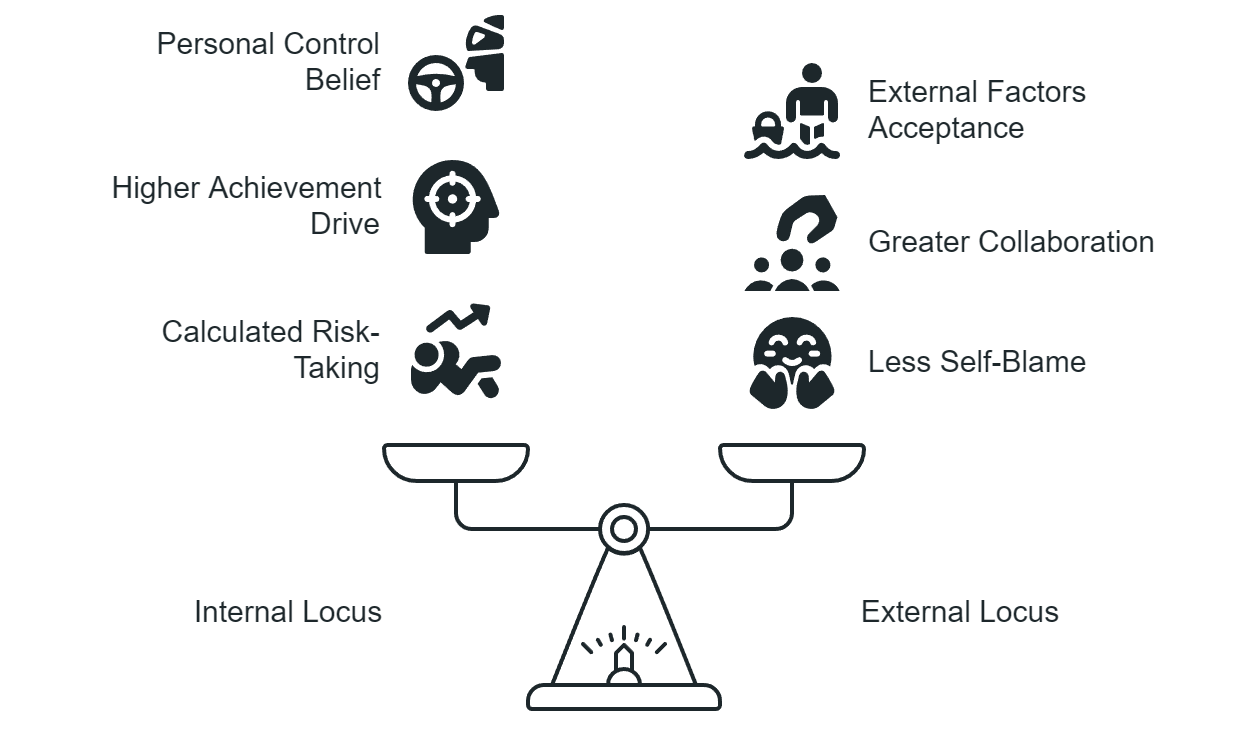
Freedom | Locus of Control
THE THOUGHT
Life happens in two ways: to or through you.
The train doors slide shut three seconds before I reach the platform. Three seconds to a disastrous afternoon.
I take the next train, only to have it break down five stops down the line. It is the coldest day of winter and I want nothing more than to make it home.
The next hours become a coordination of misfortune. Subsequent trains are delayed. Then cancelled. The taxi never arrives. Peak rush hour means buses are impossible. The northeast quadrant of the city freezes as my phone gives up.
Huddled in a crowded coffee shop, I cannot stop running the counterfactual. I think about that film, Sliding Doors. I am living that day in my own way. If I had left five minutes earlier. If Nicole had not stopped me in the hall. If I had packed a thicker scarf. The same brain that knows about bad luck insists this situation is mostly my fault.
Do you see the cause or the circumstance?
The fault, dear Brutus, is not in our stars, but in ourselves.
THE DIVE
Compass of Control
Locus of control determines whether you see yourself as the driver of your life or a passenger along for the ride.
People with an internal locus of control believe their actions directly influence outcomes. They credit personal effort for success and examine their choices when things go wrong. Those with an external locus attribute results to luck, fate, or forces beyond their reach.
Beyond optimism or pessimism, it is about perceived agency.
Consider two employees who do not get promoted. The internal person analyses their performance, seeks feedback, develops new skills. The external person blames office politics or bad timing. Both might be partially right, but their fundamental attribution creates entirely different futures.
The research is compelling. A British study following 7,500 people found that children with internal locus of control at age 10 were less likely to be overweight and had higher self-esteem at age 30. Academic studies consistently show that students with internal orientation achieve higher grades and persist longer through challenges.
Internal locus correlates with better mental health: lower depression, reduced anxiety, greater life satisfaction.
But there is a shadow side. Hyper-internal people can become controlling, anxious, or self-blaming. They shoulder responsibility for everything, including outcomes genuinely outside their influence.
External locus is not purely limiting either. These individuals often show greater acceptance of difficult circumstances and less self-punishment when things go wrong. They may be more collaborative, recognising the role others play in success.

Balancing Control and Acceptance
The most psychologically healthy people seem to possess flexible attribution. They take ownership where they have genuine influence while accepting the randomness that actually governs much of life.
Our locus of control operates like an invisible lens, filtering every experience through questions of agency and responsibility.
What would change if you could adjust the lens at will?
THE PRACTICE
The Attribution Audit
Notice your first instinct when something does not go as planned. The story your mind creates about why it happened.
Missed the train? Spilled coffee? Observe whether you immediately look inward ("I should have left earlier") or outward ("The schedule changed without notice").
Try this with positive events too. When something goes well, do you credit preparation or luck? Your pattern with success often reveals as much as setbacks.
This experiment is about recognising your default pattern without judgement.
Before you begin, take this three-minute assessment to see where you fall on the control spectrum. Knowing your baseline makes the patterns you discover more meaningful.
After awareness of your defaults, experiment with gentle attribution shifts. If you typically blame yourself, consider external factors. If you look outward, explore what you influenced.
Expanding awareness matters because this lens shapes every choice automatically. Once you see it, you can deliberately choose attributions that serve you better.
I cannot wait to hear what you discover.
NOTEWORTHY
Read: Choice or Chance: Understanding Your Locus of Control and Why It Matters by Stephen Nowicki — How beliefs about control shape relationships and career success.
Read: Mindset: The New Psychology of Success by Carol Dweck — Why believing abilities can develop creates achievement and internal agency.
Watch: Are we in control of our own decisions? by Dan Ariely — How our sense of control masks hidden forces driving choices.
COMMUNITY
TO OUR READERS

In the past three weeks, our subscriber list has grown by 272%. On average, 58% of you open these emails, nearly triple the industry average. One in four clicks through to read more, ten times higher than typical.
The numbers feel surreal, but they are not the story.
The Thought exists as an attempt to understand what shapes our choices, drives our thoughts, and makes life meaningful. Your presence brings connection, motivation, and resonance to the work. Thank you.
This edition contains affiliate links. As an Amazon Associate, we may earn from qualifying purchases at no additional cost to you. Thank you for supporting our newsletter!